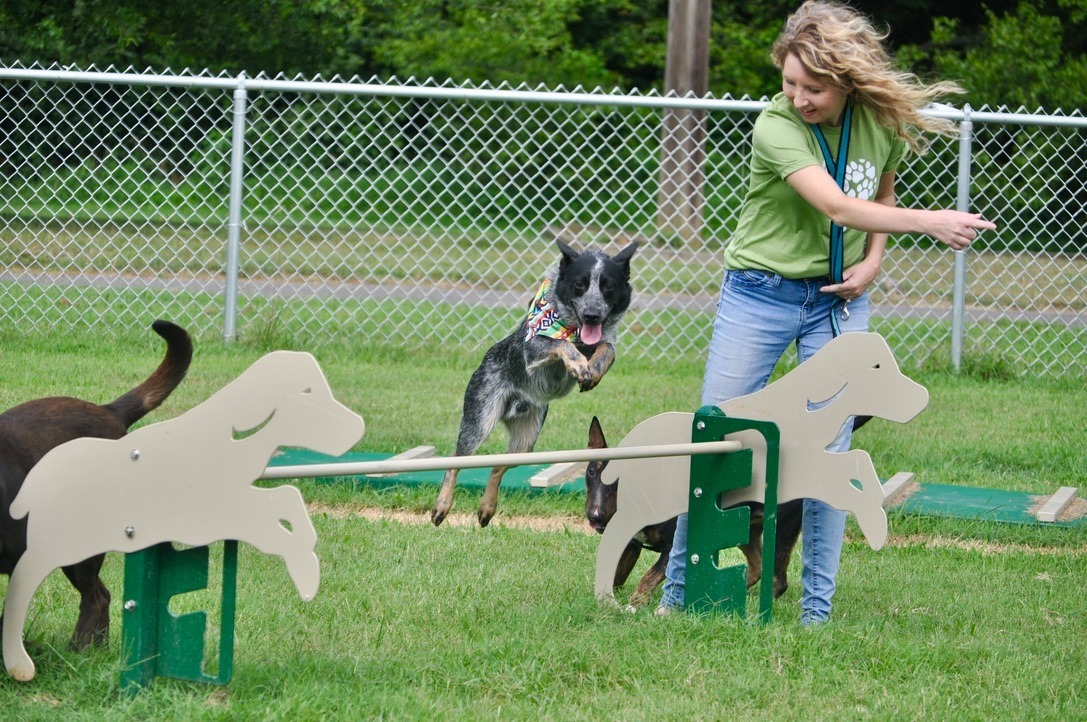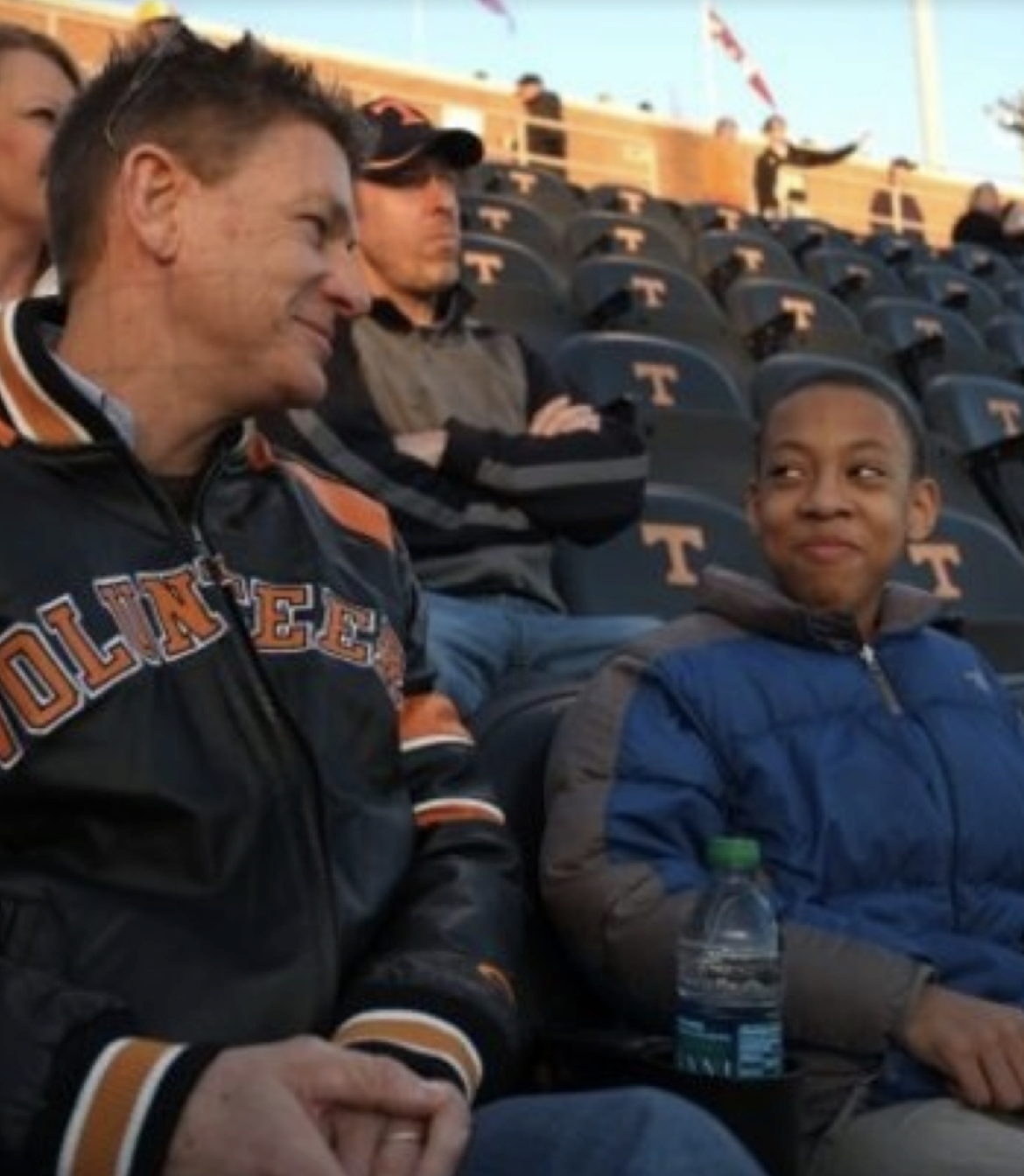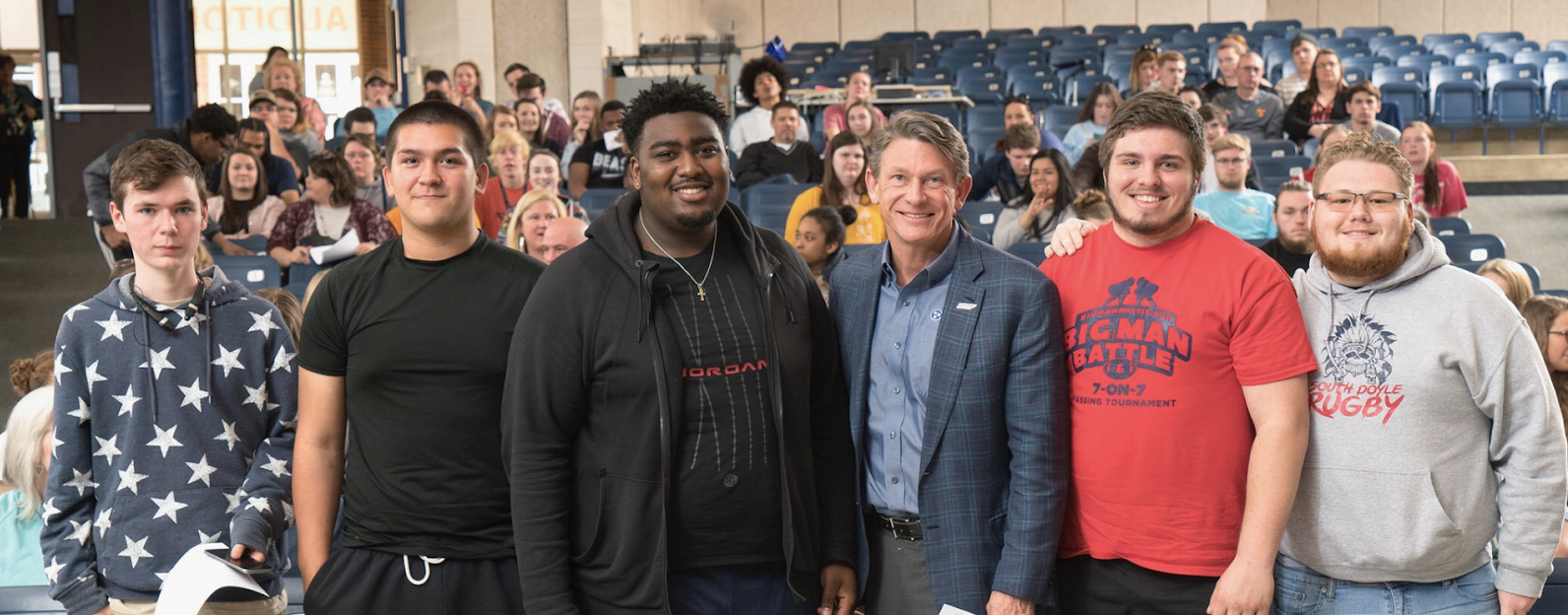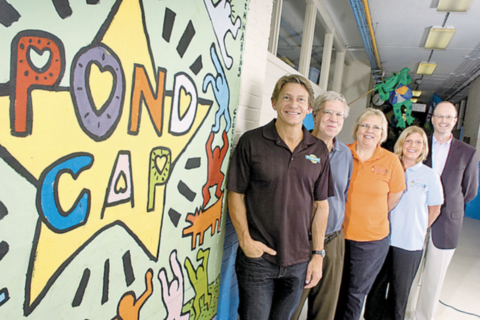Philanthropy
The Boyd Foundation works to make the greater Knoxville area a place of opportunity for all.

GIVING BACK
Randy and Jenny made a decision nearly a decade ago to dedicate the rest of their lives to giving back.
Although they had given financially to many causes over the years, after the creation of knoxAchieves in 2008, they put an increased effort and focus on philanthropy. In 2018, the couple formed the Boyd Foundation to donate millions of dollars to Tennessee causes that are close to their hearts.
Randy and Jenny have given to over 100 charitable causes, from entrepreneurship and education to child and animal welfare.
MAKING A BETTER WORLD FOR PEOPLE AND PETS
Randy and Jenny established The Boyd Foundation in 2018 to support animal welfare and youth education in Tennessee.
That’s why the Boyd Foundation’s Dog Park Dash has awarded more than 100 grants to communities all across Tennessee since 2018, totaling $3 million in grants statewide.
In 2020, the Boyd Foundation created Knox Neighborhood Dog Parks to give 10 dog park grants (5 city and 5 county), totaling $500,000, to neighborhoods in Knox County. With the addition of the 10 dog parks, Knox County would be #1 in dog parks per capita in the nation.
MENTORSHIP
In addition to donating their financial gifts, the Boyds also believe in the power of mentorship.
Randy has also dedicated more than two decades to the Boy Scouts. He attributes his leadership skills to his time as a scout. When Randy’s sons were young, he served as a den leader in Cub Scouts and founded pack 757. He later founded Troop 757 and served as its Scoutmaster for seven years. He helped more than 10 boys earn their Eagle award including his son, Harrison. In 2013 and 2014, Randy served as President of the Great Smoky Mountain Council, representing 14,000 boys in about 22 counties in East Tennessee. In 2017, The Boy Scouts of America Great Smoky Mountain Council awarded Randy with the honor of Distinguished Citizen of the Year.

For the last decade, Randy has also served as a mentor for tnAchieves. Every year, he guides five to seven high school seniors through the college application process. As a first-generation college student, Randy remembers having to navigate the process alone. He hopes to offer encouragement and motivation as students enter the next chapter of their lives.

COMMUNITY SCHOOLS
The creation of knoxAchieves, later tnAchieves, provided college access to many students who had never dreamed of affording college before.
 But it also shed light on a difficult realization: many of Tennessee’s students were not prepared for college. Randy knew we had to intervene earlier to truly help these students succeed.
But it also shed light on a difficult realization: many of Tennessee’s students were not prepared for college. Randy knew we had to intervene earlier to truly help these students succeed.
Randy began meeting with University of Tennessee education and psychology professor, Dr. Bob Kronick, to get a better idea of why many students were falling behind. Dr. Kronick explained many students couldn’t focus at school because they were dealing with hunger, violence in their homes, and didn’t have access to dental or vision care.
It became clear to Randy that we can have the best teachers in the world, led by the greatest principals, but if children are living in a toxic environment, it is nearly impossible for them to be successful in school.
Dr. Kronick presented the vision of a Community School as a way to combat children’s difficult home lives. The idea is that we must work together as a community if we want our kids to succeed and what better place to serve as a “hub” in the community, than the school, where children are already spending much of their day.
In 2010, Randy partnered with the University of Tennessee to launch the first University Assisted Community School, a public and private partnership, at Pond Gap Elementary School in Knoxville. The most at-risk students stay an extra three-and-a-half hours at the end of the school day. But instead of taking time away from their families, their families are invited to join them. Every night a hot dinner is provided to the entire family. Community organizations like Big Brothers Big Sisters, Boy and Girl Scouts, and local churches offer activities. Students gain an extra hour of academics in reading and math. Parents can take GED glasses and mental and health services are made available.
Students who participated in the after-school programming at community schools missed five fewer days from school. They also scored 7.6 scale points higher in math and 6.1 points higher in reading. Eighty-six percent of school staff agree that this strategy is paying off for their students and their schools.
Randy and Jenny contributed 100 percent of the costs for the first five years of the school. Based on Pond Gap’s success, Knoxville’s Great Schools Partnership has now helped Knox County establish 18 more community schools. Each has a resource coordinator to recruit and align community resources. Each has a site-steering committee to ensure that decisions are community-based and not top-down.
Randy and Jenny hope to see Tennessee turn around its lowest-performing schools and encourage all districts to look into the community schools model.

